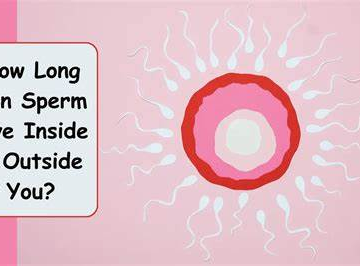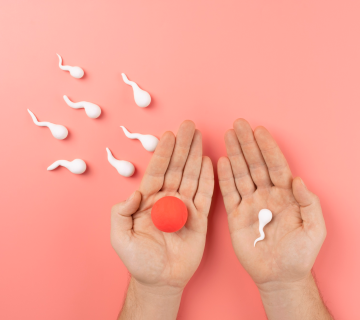
Does Masturbating Lower Sperm Count?
When it comes to male fertility, there’s a lot of conflicting advice out there. One topic that pops up again and again is the question: Does masturbating lower sperm count? Some people say it’s harmless, while others warn it might cause fertility problems over time. To give you a clear understanding, this article will dig deep into both old and new research, share insights from experts, and offer practical tips. We’ll also explore factors that rarely get mentioned, like mental well-being, environmental toxins, long-term versus short-term changes in sperm health, and emerging technologies for fertility tracking.
We’ll use simple, friendly language so you can easily follow along—no fancy medical jargon. By the end, you’ll have a more complete picture than you’ll find in most articles on this topic. Let’s dive in!
Why This Question Matters
Common Concerns About Masturbation and Fertility
When we talk about male fertility, one big measure is sperm count—how many sperm cells a man produces in a given sample. Count matters, but so does sperm motility (how well they swim) and morphology (their shape). People worry that masturbating too often might reduce these factors in ways that harm their chances of having a child.
- Frequency: If someone masturbates daily—or multiple times a day—could it lead to lower sperm numbers?
- Timing: Some couples wonder if there’s an “ideal” time period without ejaculating to have the best sperm quality.
- Long-Term Effects: Does regular self-stimulation over the years reduce fertility in the long run?
Conflicting Information
It’s easy to see why there’s confusion. Articles, forums, and even some medical sources offer conflicting views. Some say it’s totally fine, while others recommend cutting back to maximize fertility. The truth is often in the middle and can vary from person to person. Factors like age, general health, diet, and genetics all play a role.
Quick Fact: Although sperm cells regenerate on a regular cycle (about 64 days for a full production cycle), lifestyle factors can affect both short-term and long-term sperm quality.
A Quick Interactive Poll
Before we get into the nitty-gritty details, let’s do a quick poll to see where you stand. Imagine you could click on one of the options below (yes, this is just for fun here):
Poll Question: Do you think masturbation significantly affects sperm count?
- Yes, it definitely lowers sperm count.
- Maybe a little, but not enough to worry about.
- No, it doesn’t have any real effect.
- Not sure, that’s why I’m here!
(Take a moment to consider your vote. This helps you reflect on your current beliefs before we explore the science.)
What Science Says About Sperm Production
Basic Physiology
Your body is continuously producing sperm. Even if you ejaculate today, your body keeps working to replace them. Here’s the short version:
- Spermatogenesis: This is the process of producing sperm in the testes. It’s a roughly 64-day cycle.
- Storage: After being produced, sperm are stored in the epididymis, where they mature.
- Ejaculation: When you ejaculate, you release some (but not all) of these sperm.
If you masturbate frequently—say, multiple times in a single day—your sperm count might be temporarily lower in each ejaculation because you have less time to “reload.” But this doesn’t necessarily mean your overall fertility is severely harmed, especially if you allow time for your body to build up fresh sperm.
Short-Term vs. Long-Term
- Short-Term Changes: Frequent ejaculation can lead to a lower concentration of sperm per ejaculate if you do it multiple times in a row. However, many studies suggest this effect is temporary. Given a day or two without ejaculation, sperm counts often bounce back.
- Long-Term Impact: According to most research, regular masturbation doesn’t lead to permanent lower sperm counts. In fact, some studies indicate that ejaculating regularly might help clear out older sperm, potentially improving overall sperm quality.
Expert Quote (1): “There is no strong evidence that normal masturbation habits cause significant harm to long-term sperm health,” says Orion Nightingale, a reproductive health specialist.
Exploring the Myth: Does Masturbation Lower Sperm Count?
Studies and Findings
Several studies over the past decade have looked into the relationship between ejaculation frequency and sperm count. Most of them highlight these key points:
- Moderate Frequency (2-5 times a week): Often correlates with healthy sperm quality.
- High Frequency (More than once per day): May temporarily reduce sperm volume and concentration, but the body usually recovers within a short period.
One study, for example, sampled a group of men over several days. Those who ejaculated daily had slightly lower sperm counts but showed no dramatic decline in fertility when they tried to conceive. Another study found that abstaining for more than a week didn’t significantly boost fertility either; extremely long periods of abstinence can lead to older, less motile sperm.
Key takeaway: Day-to-day fluctuations in sperm count due to masturbation are usually temporary.
Three Overlooked Angles
Many online articles talk about frequency, hormones, and general lifestyle. But here are three lesser-discussed factors that can also make a difference, whether you masturbate or not. These angles are often missing or not deeply explored in most articles.
1. Mental Health and Stress
Constant anxiety about fertility can trigger a stress response in your body. High levels of the stress hormone cortisol can harm sperm production. While the act of masturbation might temporarily relieve stress for some, ongoing mental strain—whether from work, relationships, or health worries—can undercut those benefits.
- Practical Tip: Try simple mindfulness exercises or short walks in nature to lower stress levels. If stress persists, consider seeking professional help for better coping strategies.
2. Environmental Toxins
Pesticides, air pollution, and chemicals in plastics (like BPA) can influence sperm quality. If you’re exposed to these toxins regularly—through certain jobs, living near industrial areas, or using lots of plastic containers—your baseline sperm count can be impacted. Masturbation frequency might be less important than these environmental factors when it comes to overall sperm health.
- Practical Tip: Use glass or stainless-steel containers for food and beverages. Check if your workplace requires protective gear to minimize chemical exposure.
3. Long-Term vs. Short-Term Changes in Sperm Quality
Most men fixate on their sperm count at a single point in time. However, focusing on long-term patterns can be more insightful. Lifestyle changes, like improving diet, reducing alcohol, or getting better sleep, can raise your general sperm health profile. Occasional shifts from masturbating more frequently or less frequently often matter less than those bigger lifestyle factors.
- Practical Tip: Track your health habits for a few months. If you make a change—like cutting down on alcohol—note it on a calendar or app. See if there’s an improvement in your energy, mood, or even test results over time.
Expert Quote (2): “Environmental toxins are a growing concern, yet many men focus too heavily on ejaculation frequency,” says Ophelia, a researcher specializing in reproductive toxicology. “Reducing chemical exposure can have a greater impact on sperm health than small changes in masturbation habits.”
Interactive Element: The “Sperm Health” Checklist
To help you get a clearer picture, here’s a quick checklist with ✔️ and ❌. Print it out or jot it down somewhere to see if there are areas you can improve in your life. The goal is to reduce the overall stress on your body and improve fertility, regardless of how often you masturbate.
| Habit | Good Practice (✔️) | Needs Improvement (❌) |
|---|---|---|
| Balanced Diet | ✔️ High in fruits, vegetables, whole grains, lean protein | ❌ Too much fast food, excessive sugar, or processed foods |
| Regular Exercise | ✔️ 30 minutes moderate activity, 3-5 times a week | ❌ Sedentary lifestyle, no structured movement |
| Stress Management | ✔️ Meditation, hobbies, therapy, social support | ❌ Constant stress, anxiety, or insufficient sleep |
| Alcohol & Tobacco | ✔️ Minimal or no alcohol, no smoking | ❌ Heavy drinking, regular smoking or vaping |
| Environmental Exposures | ✔️ Use glass or stainless steel containers, avoid harsh chemicals | ❌ Consistent contact with industrial chemicals, BPA plastics, etc. |
| Regular Check-Ups | ✔️ Periodic medical tests, consultations with a doctor | ❌ Rarely visiting doctors or dismissing symptoms |
Use this table as a snapshot. Remember: Masturbation alone isn’t usually the core reason for low sperm count—it’s the overall lifestyle that often matters more.
The Role of Hormones
Testosterone and Prolactin
Hormones play a big part in sperm production. Testosterone is crucial for healthy sperm growth, and prolactin can influence sexual desire and sperm health, too. Some people worry that ejaculating too often lowers testosterone, but short-term changes usually bounce back.
- What Research Shows: A minor dip in testosterone can occur immediately after ejaculation, but within hours, it tends to normalize.
- Chronic Issues: If someone has hormonal imbalances due to other factors—like obesity or endocrine disorders—that can overshadow any effect from masturbation.
The Impact of Abstinence
Some believe that abstaining from masturbation for extended periods will significantly raise testosterone, but evidence for this is mixed. While short-term abstinence might lead to a slight increase in testosterone, long-term abstinence can sometimes cause mood swings, stress, or other issues that aren’t beneficial for overall health.
Frequency and Timing: Is There a Magic Number?
Daily, Weekly, or Monthly?
There’s no universal rule about how often a man should ejaculate to maintain optimal fertility. Each body is different. However, many fertility doctors suggest that for men actively trying to conceive, ejaculating every other day or every few days around a partner’s fertile window could be a sweet spot.
Quick Points:
- Ejaculating daily can decrease sperm count in each instance, but might not harm overall fertility if done in moderation.
- Going too long without ejaculating (like a week or more) might result in older sperm that are less motile.
Expert Quote (3): “What’s ‘too often’ for one man may be fine for another. Pay attention to your body’s signals and overall health,” says Caspian Sterling, a urologist with over a decade of experience in male fertility.
The Bigger Picture: Overall Sexual Health
Benefits of Masturbation
It’s not all worries and negative rumors. Masturbation can have some health upsides:
- Stress Reduction: The release of endorphins can help you relax.
- Better Sexual Awareness: Understanding your own body can lead to a healthier sex life with a partner.
- Prostate Health: Some studies suggest that regular ejaculation could help maintain prostate health by flushing out fluids.
Potential Downsides
- Excessive Frequency: Could lead to temporary dips in sperm concentration, irritation, or psychological guilt in some individuals.
- Addictive Patterns: If masturbation interferes with daily tasks, relationships, or mental health, it can become problematic.
- Avoidance of Intimacy: Relying too much on masturbation might reduce interest in partnered sex for some people.
Frequently Asked Questions (FAQ)
1. Does Masturbating Before Sex Reduce Your Chances of Conceiving?
If you masturbate right before attempting to conceive, you might release fewer sperm in the subsequent ejaculation. However, if you wait a few hours or a day, most men’s sperm counts will bounce back enough. Timing is key, so if conception is your goal, some doctors advise waiting at least 24 hours between ejaculations.
2. Should I Be Worried About Sperm “Running Out”?
Sperm production is continuous, so it doesn’t just “run out” entirely. Sperm can be temporarily depleted if you ejaculate multiple times in a very short span, but the body continually produces more.
3. Do Supplements Help?
Some supplements—like zinc, vitamin C, and certain antioxidants—may support sperm health if you have nutritional gaps. But these are not magic pills. They work best when paired with a balanced diet, exercise, and minimal exposure to toxins.
4. How Do I Know My Sperm Count?
The most reliable way is through a lab test called a semen analysis. If you’re actively trying to conceive, a fertility specialist may recommend this test. You can also do at-home test kits, but they might not be as comprehensive.
The Science of Sperm: Step-by-Step Guide to Improving Quality
Below is a step-by-step guide to help boost sperm quality overall. This is helpful whether you masturbate regularly or not.
-
Get a Baseline Test
- Visit a clinic for a basic semen analysis. Knowing your baseline count, motility, and morphology can help you track improvements.
-
Tweak Your Diet
- Focus on protein from lean meats, fish, and plant sources like beans.
- Increase intake of fruits, vegetables, and healthy fats (like avocados and nuts).
- Cut down on processed foods and sugary drinks.
-
Exercise Smart
- Aim for moderate workouts (e.g., jogging, cycling, light weightlifting) at least 3 times a week.
- Avoid intense overtraining, as it might temporarily affect hormone levels.
-
Manage Stress
- Practice mindfulness, yoga, or simple breathing exercises.
- Consider short breaks during work to stretch or chat with a friend.
-
Limit Alcohol and Quit Smoking
- Both can have a negative impact on sperm. Even moderate alcohol consumption can affect hormone levels over time.
-
Optimize Sleep
- Aim for 7-8 hours of quality sleep. Poor rest can elevate stress hormones and disrupt bodily functions.
-
Consider Supplements (After Consulting a Doctor)
- Zinc, Selenium, Vitamin C, and Coenzyme Q10 can support sperm health in some cases.
- Always consult a healthcare professional before starting any new supplement.
-
Regular Check-Ups
- Conditions like varicocele (swollen veins in the scrotum) can affect sperm count. Early detection helps.
-
Minimize Exposure to Toxins
- Switch to safer household products.
- If you work in an industrial setting, use protective gear.
-
Track Progress
- After 3-6 months of improved lifestyle, do another semen analysis to see how things have changed.
(Following these steps can offer a bigger benefit to your fertility than just reducing masturbation alone.)
Uncommon Yet Fascinating Points
Here are some extra insights you might not find in many mainstream articles:
1. Wearable Tech and Fertility Tracking
Today, some fitness wearables can track daily stress levels, temperature fluctuations, and even heart rate variability. While these devices aren’t specifically built for sperm analysis, noticing patterns in your stress or overall health can indirectly help you keep track of your fertility. If you see a spike in stress on days you skip exercise, for example, you might adjust your routine accordingly.
2. Seasonal Changes
Yes, even the seasons can influence sperm health! Research shows sperm count tends to be higher in cooler months. Hot weather, tight clothing, or spending too much time in hot baths can reduce sperm production. Considering temperature changes might help if you’re trying to conceive.
3. The Role of Genetics
Genetic factors can also play a role. Some men naturally have lower sperm counts, regardless of how they ejaculate. If you suspect a genetic component, consult a specialist to discuss advanced tests and personalized strategies.
Interactive Element: “Test Your Fertility Knowledge” Quiz
Let’s take a mini-quiz to see how much you’ve learned so far. Answer the questions below (mentally or on a piece of paper), and then check your responses against the answers provided.
1. How long does it typically take to produce a new batch of sperm?
A) 24 hours
B) About 64 days
C) A few minutes
D) One week
2. True or False: Long periods of abstinence always improve fertility.
A) True
B) False
3. Which of these can negatively impact sperm quality the most over time?
A) Occasional masturbation
B) Excessive exposure to plastics and chemicals
C) A short nap during lunch break
D) Drinking enough water
4. What’s one major benefit of moderate masturbation?
A) May help with prostate health
B) Completely eliminates stress forever
C) Cures insomnia instantly
D) Increases hair growth
Answer Key:
- B) About 64 days
- B) False
- B) Excessive exposure to plastics and chemicals
- A) May help with prostate health
How did you do? Even if you didn’t score perfectly, learning these facts can guide you toward healthier habits and a better understanding of your body.
Debunking Common Myths
Myth 1: “If I Masturbate, My Partner Won’t Get Pregnant”
Realistically, occasional masturbation doesn’t significantly prevent pregnancy if you have unprotected sex during a fertile window. If you have a healthy sperm count, your body will produce enough sperm for conception.
Myth 2: “Never Ejaculating Makes You More ‘Manly’”
There’s no evidence to support that avoiding ejaculation makes you stronger, more muscular, or more masculine. In fact, healthy ejaculation patterns can be part of a balanced lifestyle.
Myth 3: “Everyone’s Sperm Count Is the Same”
Sperm count is highly individual. Some men naturally have higher counts, others lower, and it can vary with age, health, and lifestyle. Comparing yourself to someone else isn’t always helpful.
Is It Safe to Masturbate Daily?
Individual Factors
- Age: Younger men might recover sperm count more quickly.
- Overall Health: If you’re physically fit and have no underlying conditions, daily masturbation might have minimal impact on sperm production.
- Purpose: Are you actively trying to conceive right now? If so, you might want to reduce frequency a bit to maximize sperm volume. If not, there’s probably no urgent reason to change your habits unless you notice negative effects.
Potential Downsides of Daily Masturbation
- Physical Irritation: Overdoing it can lead to soreness or discomfort.
- Psychological Factors: Sometimes, daily habits can become compulsive, which could affect mental health or relationships.
- Temporary Reduction in Sperm Volume: If you ejaculate multiple times in a day or in rapid succession, each ejaculation may have fewer sperm.
(In most cases, these issues are manageable if you practice moderation.)
Putting It All Together
Balance Is Key
When it comes to sperm count and masturbation, the primary lesson is balance. Masturbating once in a while won’t destroy your fertility, and overdoing it temporarily might lower sperm count, but not usually in a permanent way. The broader context—lifestyle, genetics, stress, environmental exposure—matters more for long-term sperm health.
Realistic Expectations
Lifestyle changes such as improved diet, stress management, and reducing toxic exposures can help boost sperm quality more than simply cutting out masturbation altogether. If you’re trying to have a baby, timing intercourse around ovulation may have a more direct effect than merely worrying about how often you masturbate.
Another Interactive Element: Simple “Lifestyle Tally”
Now that you know more about how different factors influence sperm health, rate yourself on a scale from 1 to 5 for each of the items below (1 = poor, 5 = excellent). Add them up at the end.
- Diet Quality: (1–5)
- Physical Activity: (1–5)
- Sleep and Rest: (1–5)
- Stress Levels: (1–5)
- Chemical Exposure: (1–5, with 5 meaning minimal exposure)
Total Score: ___ out of 25
- If you scored 20 or above, you’re likely doing a lot of things right!
- If you scored under 15, consider focusing on certain areas to improve your overall health and possibly your sperm count.
Cutting-Edge Research and Future Directions
New Technologies in Semen Analysis
Researchers are working on home test kits that use smartphone-based microscopes to analyze sperm motility and count. As these become more reliable, men can test themselves more conveniently and track changes over time.
Lifestyle Monitoring Apps
Some apps go beyond simple step counting. They analyze patterns in your nutrition, stress, and sleep, aiming to predict how these factors might influence your fertility. While not foolproof, they can help you stay accountable.
Mind-Body Connection
A growing field of research is looking into the link between mental wellness and fertility. Future studies may focus on how practices like yoga, meditation, and cognitive behavioral therapy can enhance sperm health beyond just reducing stress.
When to See a Doctor
If you’ve tried lifestyle changes and still have concerns about fertility or sperm quality, it’s wise to consult a medical professional. They can perform tests like hormone panels, semen analyses, and even genetic screenings. Early detection of any underlying condition can make a big difference.
Possible Signs to Seek Help:
- Consistently low sperm count results in multiple tests.
- Erectile dysfunction or other sexual health issues.
- Hormonal imbalances or fatigue.
- Varicocele or other physical abnormalities.
Conclusion
So, does masturbating lower sperm count? If we had to give a simple answer, it’s “not in any permanent or significant way for most men.” While daily ejaculation may reduce the volume and concentration of sperm in each individual release, this doesn’t typically translate into lasting harm. The body is designed to produce sperm continuously, so the effect of masturbation is usually short-lived.
Far more critical than masturbation frequency are overall lifestyle habits: a good diet, regular exercise, minimal exposure to harmful toxins, adequate sleep, and effective stress management. If you’re trying to conceive, moderate your masturbation habits around ovulation, but don’t stress too much about it. Stress, after all, can be more damaging to fertility than the act of masturbating.
Always remember: Everyone is unique. If you have ongoing concerns or unusual symptoms, consult a healthcare provider for tailored advice. Understanding your body is an important step toward better sexual health, and hopefully, this deep dive has helped clarify some misconceptions and introduced you to new areas worth exploring—like mental well-being, environmental factors, and emerging tech.



